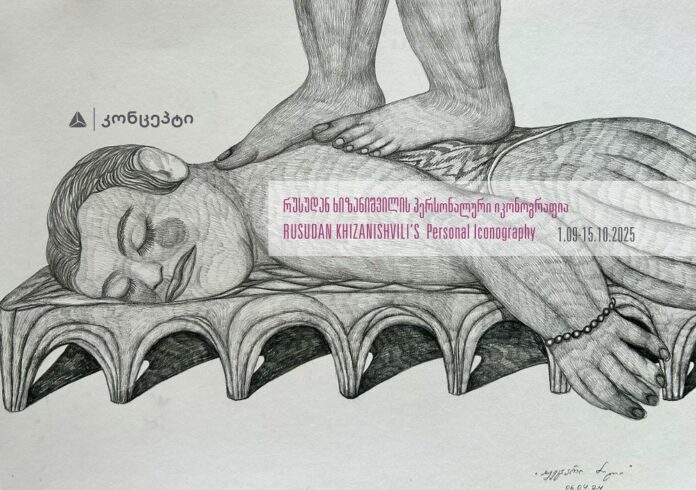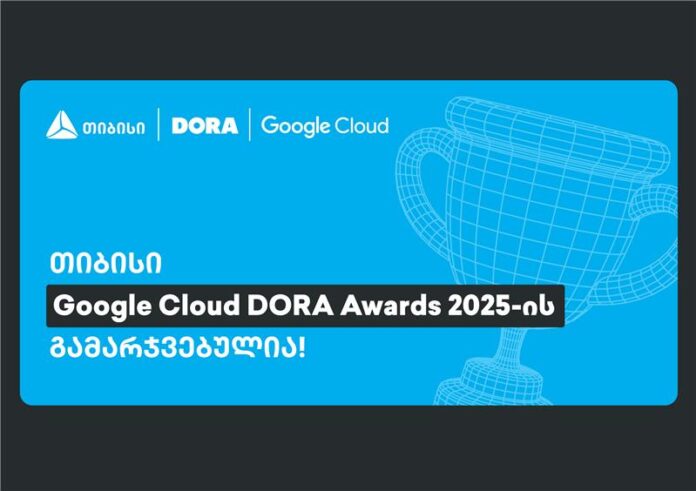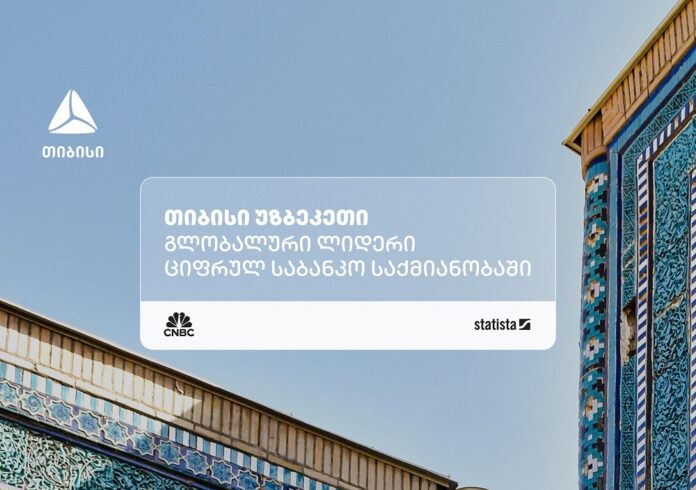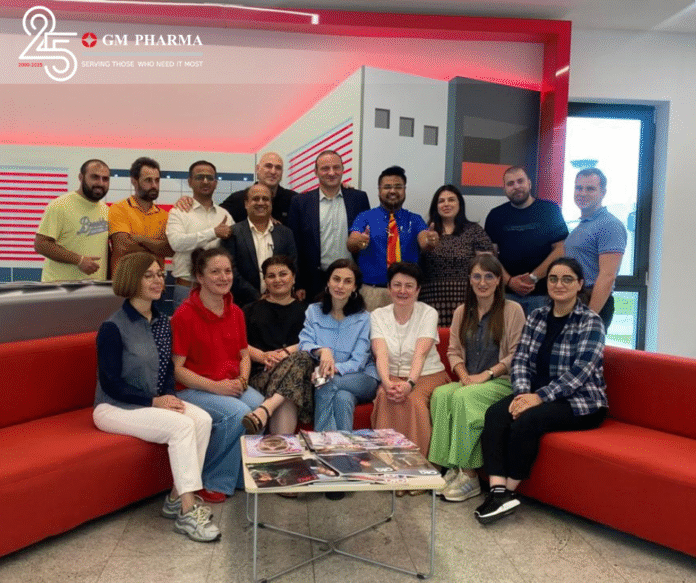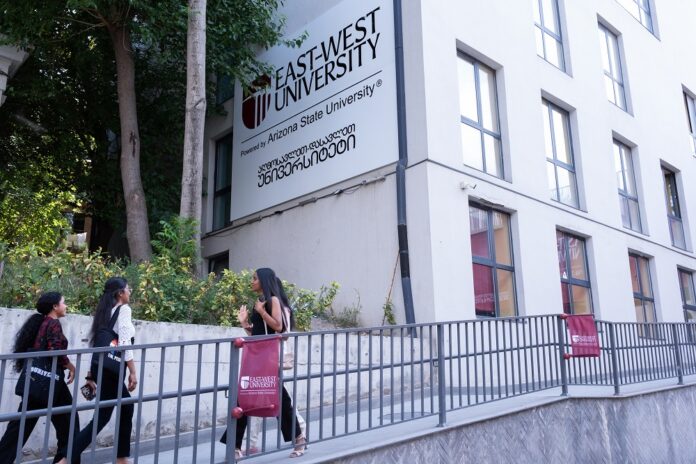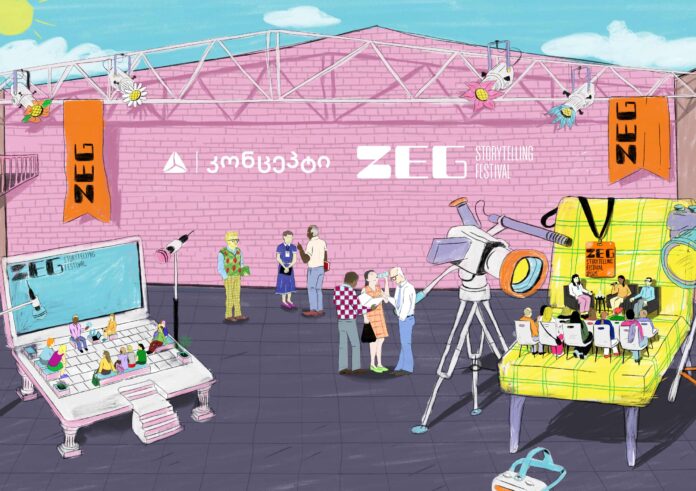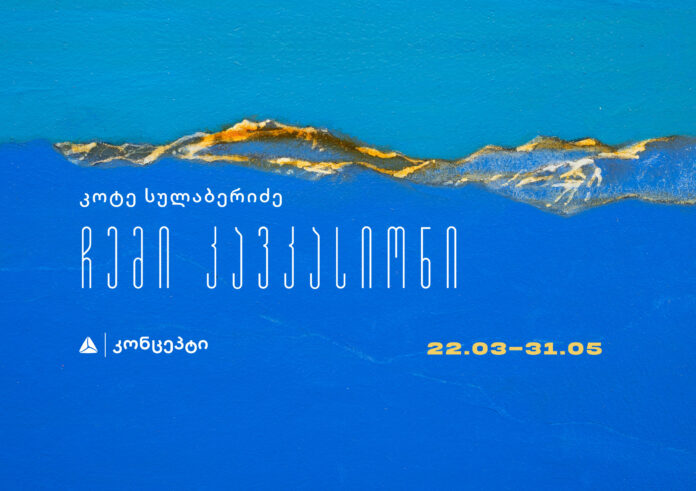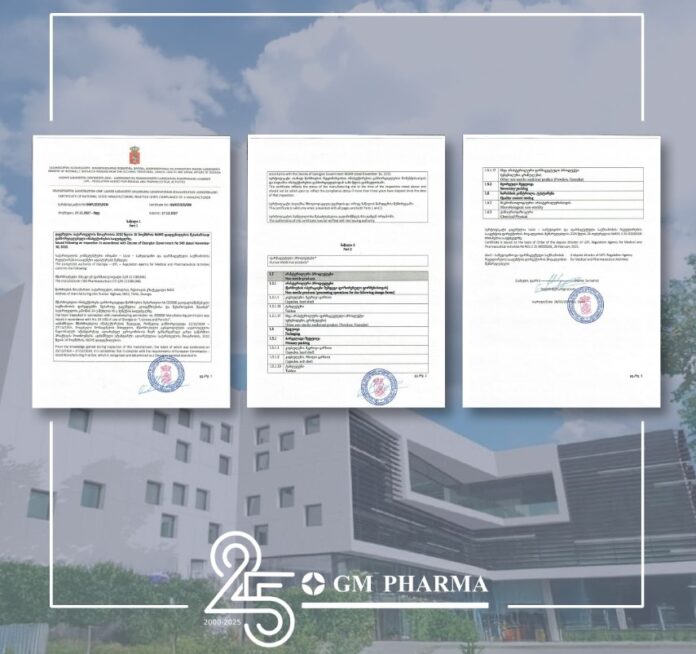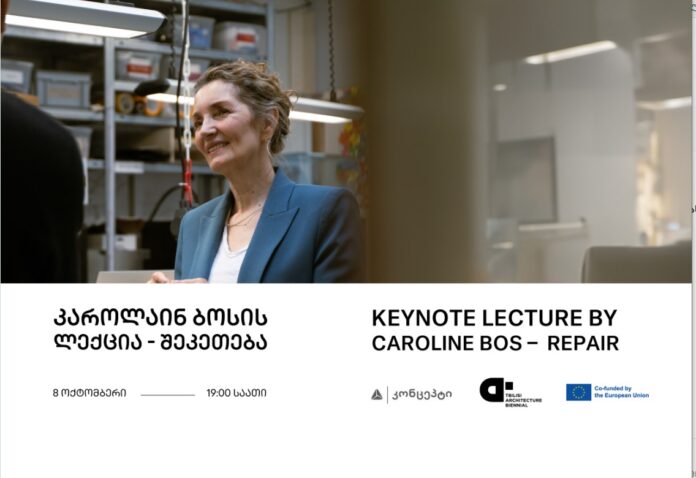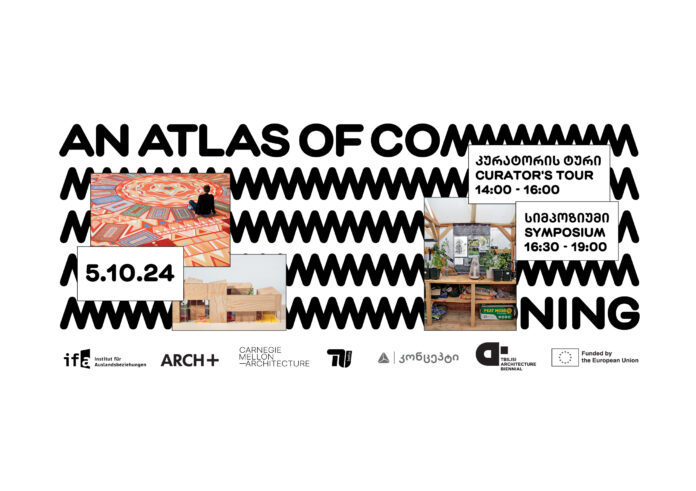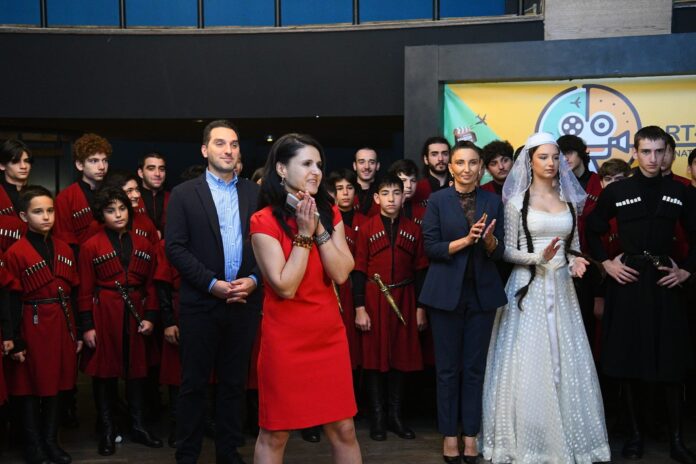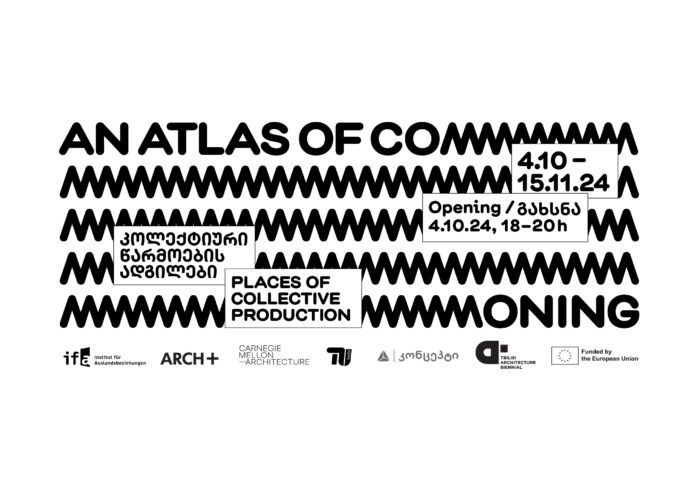TBC Concept Gallery is pleased to present the exhibition Rusudan Khizanishvili’s Personal Iconography. The exhibition unfolds in two parts: the first floor is dedicated to graphic works, while the second floor features six large-scale paintings.
Although Khizanishvili is widely recognized for her vivid and colorful canvases, her black-and-white drawings in pencil are being presented here for the first time as a separate body of work.
What do these graphic works reveal? At first glance, they might resemble illustrations for a fairy tale. Yet the narrative, the myth, or the character they might belong to remains elusive. Khizanishvili’s women appear as heroines of unknown myths, inhabiting enigmatic scenes whose storylines resist easy deciphering. Their mystery recalls the black-and-white collagraph prints of the Cuban graphic artist Belkis Ayón, who drew on the secret, orally transmitted stories of the Abakuá religious society.
Khizanishvili paints her canvases in the studio, but her works on paper are created at home. As the artist herself notes, each drawing functions like a diary entry. With graphite pencil she renders exaggerated figures of her protagonists—giant women whose very skin takes on a strange, textured surface. Through layers of directional hatching she transforms their bodies until they seem clothed in scales or wings. These figures may be dining, embracing skull-headed creatures, or lying in a sulfur bath where a masseur stands pressing down on them with his feet. A lot is happening in these drawings: the artist uses her imagination to create a personal iconography and tells stories through her own characters.
Rusudan Khizanishvili lives and works in Tbilisi. Over the past decade, her work has been exhibited extensively in Georgia and internationally. She currently collaborates with several international galleries, including Kornfeld (Berlin), LJ Galerie (Paris), Mimmo Scognamiglio (Milan), and Window Project (Tbilisi).
In 2025 she held a solo exhibition at Seojung Art Gallery (Busan/Seoul, South Korea) and participated in a three-artist group exhibition at Kornfeld (Berlin). Later this year, a duo exhibition is planned at CAM Galería (Mexico City, Mexico).
Her works are part of several public and private collections, including the Georgian National Museum of Art, Oni Regional Museum, the Kvareli foundation, and the Breus Foundation.
All works on view are courtesy of the artist and gallery Window Project, Tbilisi.
Curated by Irena Popiashvili.
Venue: Marjanishvili 7, TBC Concept Flagship
Exhibition opening: September 1st, 18:00- 20:00
Exhibiton duration – 1.09.-15.10.2025
Opening hours: Monday – Saturday, 10:00 – 20:00.




